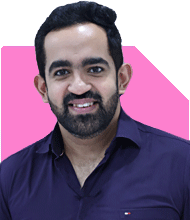44, Wife 39, 2 Kids - Should I Buy Property Now or Wait?
Ramalingam Kalirajan |8093 Answers |Ask -Follow
Mutual Funds, Financial Planning Expert - Answered on Nov 01, 2024
He has an MBA in finance from the University of Madras and is a certified financial planner.
He is the director and chief financial planner at Holistic Investment, a Chennai-based firm that offers financial planning and wealth management advice.... more

Hi sir, My age 44, Wife 39 (housewife), Two Kids age 10 and 6.5 (both school going). Is it advisable to buy a property in this post-covid era where property rates are increased multi fold without any stability. Or to wait for another 1-2 years so as to market gets stabilize. This seems property rates are increased intentionly by the builders/dealers to earn the loses they faced during covid era. Pl suggest. (past situation, lost around 25 L in a property and currently living on rent)
Post-Covid Real Estate Price Surge
Property prices have risen significantly post-Covid, creating concerns around overpricing. This increase often reflects builders covering pandemic-related losses rather than stable market growth.
Current conditions may not present the best value, as prices could stabilise when demand and supply balance out.
Impact of Price Volatility
Entering an inflated market increases the risk of depreciation if prices correct in the near term.
For stability, consider waiting 1-2 years. This may allow time for prices to settle and provide a clearer picture.
Financial Security and Prior Loss in Property
Having experienced a significant loss of Rs 25 lakh in property before, it’s wise to avoid unnecessary risk.
Instead of real estate, focusing on diversified financial investments can provide better returns and liquidity.
Benefits of a Wait-and-Watch Strategy
Waiting for 1-2 years can allow the market to stabilise and offer better opportunities.
Renting provides flexibility without the financial lock-in, while potential savings can be allocated to investments with growth prospects.
Investment Alternatives to Consider
Diversified Mutual Funds
Actively managed mutual funds offer growth, transparency, and liquidity. They are managed by skilled professionals and have performed well for long-term wealth building.
Unlike direct mutual funds, investing through a Certified Financial Planner brings expert oversight, helping you optimise your portfolio without added effort.
Systematic Investment Plans (SIP)
SIPs allow you to grow capital gradually, adjusting your investment amount over time for flexibility.
Mutual funds, especially SIPs in equity, benefit from the power of compounding, creating long-term wealth even during volatile market conditions.
Children’s Education and Future Needs
Since your children are in school, setting up dedicated funds for their future education can offer peace of mind.
Diversified investment plans focused on education will allow gradual wealth accumulation tailored to their academic needs.
Taxation Considerations
Mutual Fund Capital Gains
Long-term capital gains (LTCG) above Rs 1.25 lakh on equity mutual funds are taxed at 12.5%.
Short-term gains on equity are taxed at 20%. For debt funds, LTCG and STCG align with your tax slab, making them transparent.
Final Insights
Current property rates may not offer long-term value; waiting for stability seems sensible.
Building wealth with diversified investments, SIPs, and planning for children’s education provides financial security without risking depreciation.
Use mutual funds managed by experts, ensuring your financial goals are on track with professional guidance.
Best Regards,
K. Ramalingam, MBA, CFP,
Chief Financial Planner,
www.holisticinvestment.in
https://www.youtube.com/@HolisticInvestment
You may like to see similar questions and answers below
Hemant Bokil | Answer |Ask -Follow
Financial Planner - Answered on Jan 31, 2023
Ramalingam Kalirajan |8093 Answers |Ask -Follow
Mutual Funds, Financial Planning Expert - Answered on Jun 13, 2024
Ramalingam Kalirajan |8093 Answers |Ask -Follow
Mutual Funds, Financial Planning Expert - Answered on Jun 30, 2024
Ramalingam Kalirajan |8093 Answers |Ask -Follow
Mutual Funds, Financial Planning Expert - Answered on Oct 23, 2024
Milind Vadjikar |1102 Answers |Ask -Follow
Insurance, Stocks, MF, PF Expert - Answered on Mar 12, 2025
Dr Dipankar Dutta |956 Answers |Ask -Follow
Tech Careers and Skill Development Expert - Answered on Mar 12, 2025
Radheshyam Zanwar |1412 Answers |Ask -Follow
MHT-CET, IIT-JEE, NEET-UG Expert - Answered on Mar 12, 2025
Radheshyam Zanwar |1412 Answers |Ask -Follow
MHT-CET, IIT-JEE, NEET-UG Expert - Answered on Mar 12, 2025
Inderpaul Singh |47 Answers |Ask -Follow
Leadership Coach - Answered on Mar 12, 2025
T S Khurana |398 Answers |Ask -Follow
Tax Expert - Answered on Mar 12, 2025
T S Khurana |398 Answers |Ask -Follow
Tax Expert - Answered on Mar 12, 2025
Rajesh Kumar Singh |192 Answers |Ask -Follow
IIT-JEE, GATE Expert - Answered on Mar 12, 2025
T S Khurana |398 Answers |Ask -Follow
Tax Expert - Answered on Mar 12, 2025
Aamish Dhingra |14 Answers |Ask -Follow
Life Coach - Answered on Mar 12, 2025



























